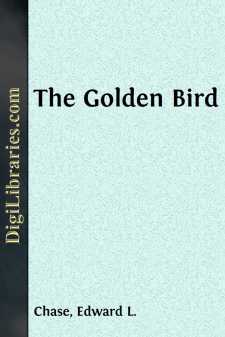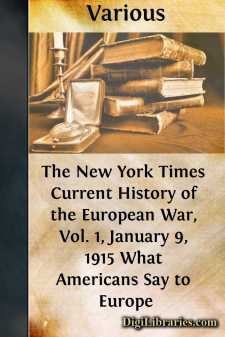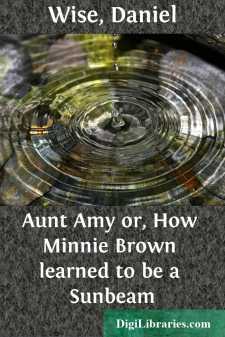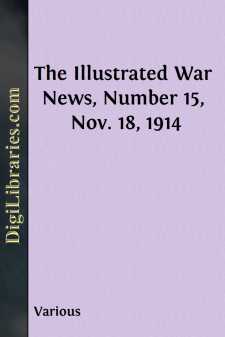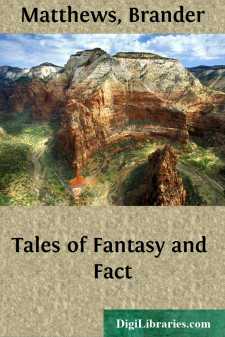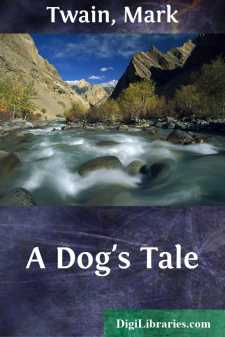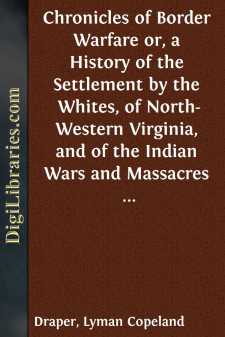Categories
- Antiques & Collectibles 13
- Architecture 36
- Art 48
- Bibles 22
- Biography & Autobiography 813
- Body, Mind & Spirit 142
- Business & Economics 28
- Children's Books 13
- Children's Fiction 10
- Computers 4
- Cooking 94
- Crafts & Hobbies 4
- Drama 346
- Education 46
- Family & Relationships 57
- Fiction 11828
- Games 19
- Gardening 17
- Health & Fitness 34
- History 1377
- House & Home 1
- Humor 147
- Juvenile Fiction 1873
- Juvenile Nonfiction 202
- Language Arts & Disciplines 88
- Law 16
- Literary Collections 686
- Literary Criticism 179
- Mathematics 13
- Medical 41
- Music 40
- Nature 179
- Non-Classifiable 1768
- Performing Arts 7
- Periodicals 1453
- Philosophy 64
- Photography 2
- Poetry 896
- Political Science 203
- Psychology 42
- Reference 154
- Religion 513
- Science 126
- Self-Help 84
- Social Science 81
- Sports & Recreation 34
- Study Aids 3
- Technology & Engineering 59
- Transportation 23
- Travel 463
- True Crime 29
Sort by:
I I was on a French steamer bound from Havre to New York, when I had a peculiar experience in the way of a shipwreck. On a dark and foggy night, when we were about three days out, our vessel collided with a derelict--a great, heavy, helpless mass, as dull and colorless as the darkness in which she was enveloped. We struck her almost head on, and her stump of a bowsprit was driven into our port bow with...
more...
PRELUDE. I would sing Thy love, my Saviour, O, how can I silent be! Though more sweetly, more sublimely Many touch the chords to Thee. In thy mercy in abundance, Not a stream but boundless main: Let me but rehearse the riches JESUS doth for worlds contain! I.EARTH’S CROWN. Thorns had the Saviour of mankind His only Crown while here below: Could Earth no other garland find With which to deck his holy...
more...
by:
Walter Scott
It has long been the ambition of the present publishers to offer to the public an ideal edition of the writings of Sir Walter Scott, the great poet and novelist of whom William Hazlitt said, 'His works are almost like a new edition of human nature.' Secure in the belief not only that his writings have achieved a permanent place in the literature of the world, but that succeeding generations...
more...
by:
Edward L. Chase
The primary need of a woman's nature is always supposed to be love, but very suddenly I discovered that in my case it was money, a lot of it and quick. That is, I thought I needed a lot and in a very great hurry; but if I had known what I know now, I might have been contented feeding upon the bread of some kind of charity, for instance, like being married to Matthew Berry the very next day after I...
more...
by:
Various
In the Supreme Court of Civilization Argued by James M. Beck. THE NEW YORK TIMES submitted the evidence contained in the official "White Paper" of Great Britain, the "Orange Paper" of Russia, and the "Gray Paper" of Belgium to James M. Beck, late Assistant Attorney General of the United States and a leader of the New York bar, who has argued many of the most important cases...
more...
by:
Daniel Wise
AUNT AMY. As Minnie Brown was walking one day along the principal street of Rosedale, she met Arthur Ellerslie, who said to her,— “Minnie, there is a letter in the post office for you.” “A letter for me!” exclaimed the little girl, her bright eyes flashing at the bare idea of a letter being sent to her. “Yes, there is a letter for you, Minnie. I saw it myself in the post office window,”...
more...
by:
Various
THE GREAT WAR. Our gracious Sovereign—more so even than his deceased father, who had also a conspicuous gift that way—has ever shown a singular felicity in voicing the sentiments of his people, but never more so than when he sent this message to Sir John French: "The splendid pluck, spirit, and endurance shown by my troops in the desperate fighting which has continued for so many days against...
more...
by:
Brander Matthews
A PRIMER OF IMAGINARY GEOGRAPHY "Ship ahoy!" There was an answer from our bark—for such it seemed to me by this time—but I could not make out the words. "Where do you hail from?" was the next question. I strained my ears to catch the response, being naturally anxious to know whence I had come. "From the City of Destruction!" was what I thought I heard; and I confess that it...
more...
by:
Mark Twain
My father was a St. Bernard, my mother was a collie, but I am a Presbyterian. This is what my mother told me, I do not know these nice distinctions myself. To me they are only fine large words meaning nothing. My mother had a fondness for such; she liked to say them, and see other dogs look surprised and envious, as wondering how she got so much education. But, indeed, it was not real education; it was...
more...
It is sixty-four years since the original edition of Withers’s Chronicles of Border Warfare was given to the public. The author was a faithful recorder of local tradition. Among his neighbors were sons and grandsons of the earlier border heroes, and not a few actual participants in the later wars. He had access, however, to few contemporary documents. He does not appear to have searched for them, for...
more...





